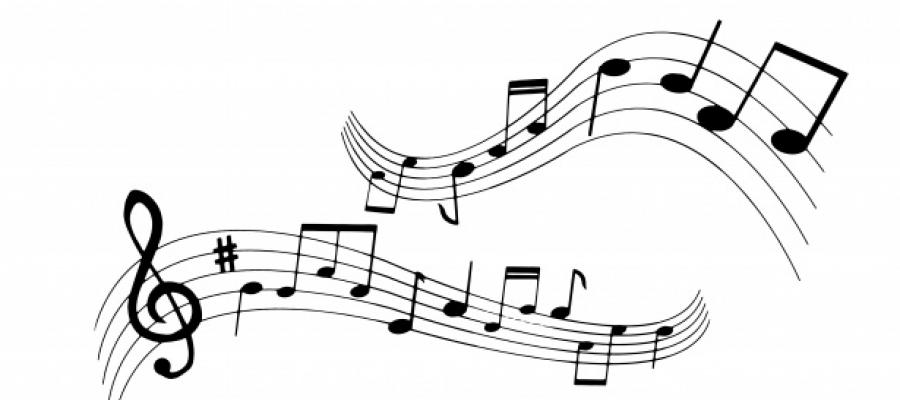The Influence of Music on Emotions and Psychological Health
In the realm of psychology and wellness, the extensive effect of songs on emotions and mental health has actually long been a topic of passion and research study. From influencing state of mind to offering as an effective device for stress and anxiety monitoring, music's function in forming psychological health and wellness is complex and deserving of more exploration.
Effect of Songs on Mood

Study has revealed that songs can modulate state of mind by triggering neural paths associated with emotions in the brain. Understanding just how music affects mood can have significant implications for making use of music as a therapeutic device for emotional law and mental health.
Connection In Between Music and Tension
The interplay in between music stimulations and the human response to tension has actually been a subject of growing passion in the areas of psychology and neuroscience (MUSIC). Music has actually revealed impressive possibility in mitigating stress and anxiety degrees and promoting leisure. Studies have suggested that listening to music can bring about physical modifications in the body, such as lowered heart price, lower high blood pressure, and lowered degrees of cortisol - a hormone related to stress
The link in between songs and anxiety alleviation is thought to be very closely connected to the influence of music on the limbic system, which plays a key duty in emotions and anxiety reactions. In addition, personal songs choices can additionally affect the stress-reducing impacts of songs, highlighting the importance of personalized techniques when making use of songs as a stress management tool.
Music as a Restorative Device

Study has revealed that music treatment can considerably lower anxiety, anxiety, and persistent discomfort. Songs has the capability to stimulate memories, promote positive feelings, and provide a feeling of comfort and relaxation.
Influence of Songs on Mental Health

Songs has been discovered to have profound effects on mental wellness by influencing mood, lowering stress and anxiety, and boosting total health. Additionally, songs therapy, a structured use of songs to boost psychological health results, has been revealed to be helpful for individuals with numerous mental health and wellness problems, including post-traumatic anxiety problem (PTSD), schizophrenia, and mental deterioration. Overall, the impact of songs on psychological health and wellness is an encouraging location of study that uses potential therapeutic benefits for individuals dealing with different mental health obstacles.
Ways to Incorporate Songs for Wellness
An efficient way to boost health with music is by integrating individualized playlists customized to private choices and moods. Songs has the power to evoke emotions and affect our psychological state, making it an important device for promoting well-being. One way to incorporate music for well-being is by developing playlists that resonate with certain feelings or goals. Creating a playlist of positive tunes for a morning increase or kicking back tunes for tension alleviation can be helpful.
One more way to utilize music for wellness is via energetic listening. Making the effort to website here truly engage with the songs, concentrating on the lyrics, tools, and general structure, can grow the psychological link and enhance the therapeutic effects. This conscious method to paying attention can aid people process feelings, lower anxiousness, and enhance general psychological wellness.
Furthermore, going to real-time music occasions or concerts can also add to well-being by offering a feeling of joy, community, and link. Becoming part of a common music experience can boost spirits, cultivate a sense of belonging, and Get the facts produce enduring memories that favorably influence psychological wellness.
Conclusion
To conclude, music has a considerable influence on feelings and psychological well-being. It can influence mood, lower stress and anxiety, and serve as a therapeutic tool for improving psychological wellness. Integrating songs into day-to-day regimens can boost overall well-being and add to a positive state of mind. It is very important to recognize the power of songs in promoting psychological balance and psychological quality.
The connection between songs and mood is complex, with various aspects of songs such as tempo, mode, and pitch having fun essential duties in eliciting psychological reactions. Recognizing how music influences state of mind can have substantial effects for using music as a restorative tool for psychological law and mental well-being.
The link in between songs and anxiety relief is thought to be carefully connected to the effect of music on the limbic system, which plays an essential role in emotions and tension responses. In addition, personal songs preferences can also influence the stress-reducing results of music, highlighting the relevance of personalized strategies when making use of music as a stress administration tool. Furthermore, songs therapy, a structured use of music to improve mental health end results, has been shown to be helpful for individuals with numerous mental health and wellness conditions, including post-traumatic stress and he has a good point anxiety problem (PTSD), schizophrenia, and dementia.